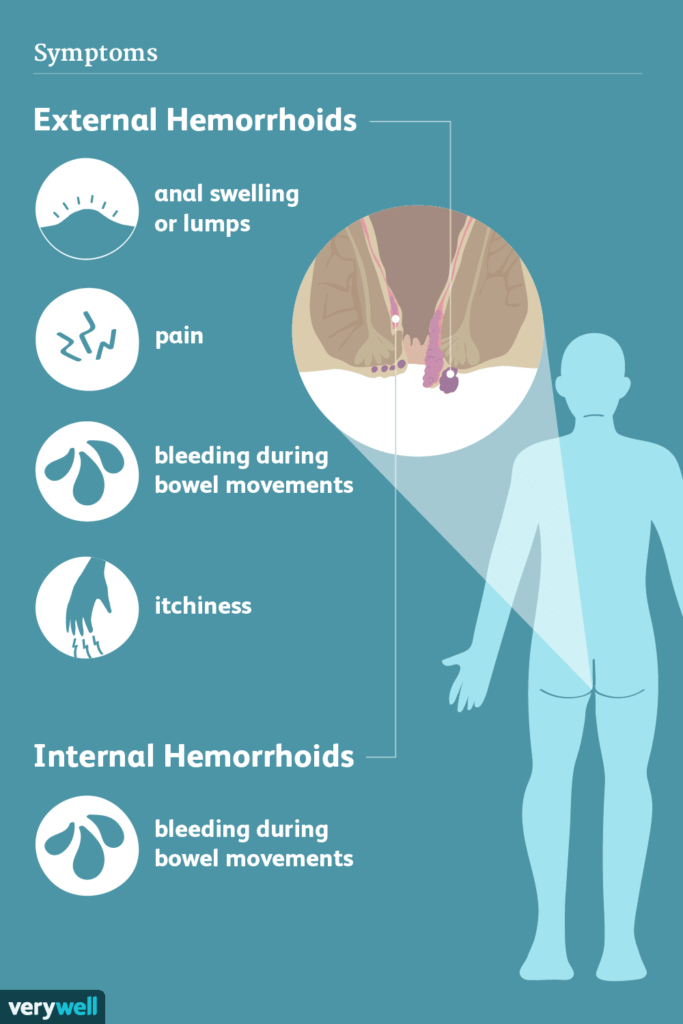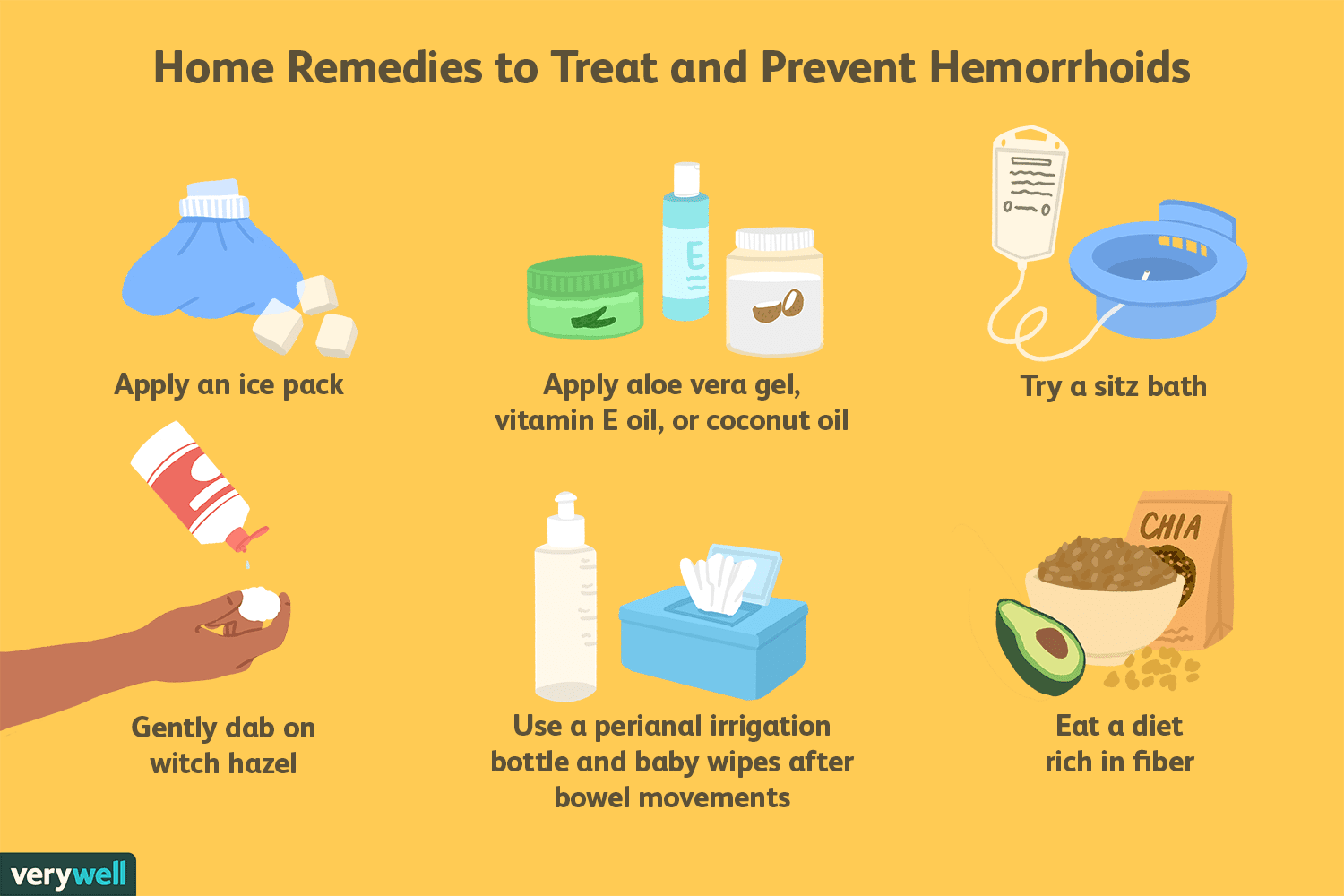As an Amazon Associate I earn from qualifying purchases.
Overview of Hemorrhoids
Definition of Hemorrhoids
Hemorrhoids, also known as piles, are swollen veins located around your anus and in the lower part of your rectum. You can think of them like little balloons that fill up with blood and get bigger when you put too much pressure on them. They’re actually pretty common, and lots of people have them without even knowing it!
Types of Hemorrhoids: Internal and External
There are two types of hemorrhoids: internal and external. The names give you a clue about where they are.
Internal Hemorrhoids
Internal hemorrhoids are inside your rectum, which is the last part of your large intestine (the tube that carries poop from your stomach to your bottom). These hemorrhoids usually don’t hurt because there aren’t as many nerves in that area. But, sometimes, they can get really big and push through your anus, which is called “prolapse.” Ouch!
External Hemorrhoids
External hemorrhoids are the ones you can see and feel outside your anus. These are the ones that tend to cause more pain and discomfort because there are more nerves around the anus.
Common Symptoms of Hemorrhoids
Now that you know what hemorrhoids are and where they can happen, let’s talk about some of the signs that might mean you have them. Keep in mind, just because you have these symptoms doesn’t mean you definitely have hemorrhoids – there are other conditions that can cause similar problems. But, it’s still good to know what to look out for:
-
Bleeding: If you see bright red blood on your toilet paper or in the toilet bowl after you poop, it might be a sign of internal hemorrhoids. Don’t be too alarmed – it’s usually not a lot of blood, but it’s worth talking to a doctor about it.
-
Itching: Hemorrhoids can cause the skin around your anus to become itchy and irritated. It’s important not to scratch because it can make the problem worse!
-
Pain: As we mentioned earlier, external hemorrhoids can be pretty painful, especially when you have a bowel movement.
-
Swelling and lumps: You might be able to feel a swollen or tender bump around your anus, which could be an external hemorrhoid.
If you think you might have hemorrhoids, it’s a good idea to talk to a doctor or another healthcare professional. They can help you figure out what’s going on and give you tips on how to feel better.

Causes of Hemorrhoids
Straining during bowel movements
Sometimes, when you try to poop, you might push too hard. Imagine squeezing a balloon too tight – it puts a lot of pressure on one spot and the balloon may pop! The same thing can happen to the blood vessels in your bottom. So, try not to strain too hard when you’re using the bathroom.
Constipation and diarrhea
Feeling like you can’t go to the bathroom, or having to go way too often, can lead to hemorrhoids. In the case of constipation, you might strain a lot, leading to that “balloon popping” situation we mentioned earlier. On the other hand, diarrhea can irritate the area and cause swelling. To avoid this, make sure to eat a balanced diet with enough fiber to keep you regular.
Sitting on the toilet for a long time
You might love reading comics or playing games on your phone while you’re on the toilet, but spending a lot of time sitting there can cause hemorrhoids! Just like sitting on a stool for too long might make your bottom sore, long toilet sessions put pressure on the blood vessels down there. So, wrap up your bathroom business and save the games for later.
Obesity and increased pressure on pelvic area
Sometimes, carrying extra weight on your body can put too much pressure on the pelvic area (the part of your body near your hips). This added pressure can lead to hemorrhoids. Staying active and maintaining a healthy weight can help reduce this risk.
Pregnancy and delivery
Did you know that women can get hemorrhoids when they are pregnant or giving birth? Just like carrying extra weight can put pressure on the pelvic area, so can pregnancy! If your mom, sister, or aunt has ever been pregnant, they might have experienced this. It’s essential to talk to a doctor if you’re worried about hemorrhoids during pregnancy.
Genetics and family history
Sometimes, the reasons for our body’s behavior lie in our genes. If your parents or grandparents have had hemorrhoids, there’s a chance you could get them too. This is called genetics, where your body’s traits are passed down from family members. While you can’t change your genes, you can still work on being healthy to reduce the risk of getting hemorrhoids.
In conclusion, making healthy lifestyle choices can help prevent hemorrhoids. Remember to eat a balanced diet, be active, spend less time on the toilet, avoid straining, and stay at a healthy weight to reduce the risk. And don’t forget – if you ever have concerns, it’s always best to talk to a doctor!

Impact of Lifestyle Choices on Hemorrhoids
Hemorrhoids, also known as piles, are swollen veins in the lower part of your bum. Nobody wants them, but sometimes our lifestyle choices can increase the chance of getting them. Here’s what you need to know:
Dietary habits and their relation to constipation
What you eat plays a big role in whether or not you get hemorrhoids. Constipation, which is when you have a hard time pooping, can cause hemorrhoids. Some foods make you more constipated, like junk food, fast food, and processed food. Make sure you’re eating a balanced diet, and try to include fruits, vegetables, and whole grains to keep your poop moving along smoothly!
Importance of hydration and fiber intake
Drinking lots of water and eating fiber-rich foods are other ways to avoid constipation. Water helps soften your poop, making it easier to pass. Fiber is found in fruits, vegetables, and whole grains, and it helps your digestive system work better. Aim for at least 25 to 30 grams of fiber a day, and don’t forget to drink plenty of water to flush out your system!
Exercise and its role in preventing hemorrhoids
Working out can also help you avoid hemorrhoids. When you’re active, your body gets moving, and so does your digestive system! Regular exercise keeps your blood flow strong, which keeps the veins in your bum happy and healthy. You don’t need to be a fitness superstar; just go for a walk, swim, or ride a bike a few times a week!
Sedentary lifestyle and prolonged sitting
Sitting for long periods can increase the pressure on your bum’s veins, and that can lead to hemorrhoids. That means, if you have a job where you sit all day, you’ve got to take breaks and get up once in a while. Even just standing up or walking around for a few minutes can help. Make it a habit to move more throughout the day to keep those veins in shape!
Stress and its effect on bowel movements
Believe it or not, stress can also play a role in hemorrhoids. When you’re stressed or anxious, your body can tense up, making it harder for you to poop. And as we know, straining to poop can lead to hemorrhoids! So find ways to manage your stress like taking deep breaths, talking to a friend, or taking some time out for yourself. Remember, a happy and relaxed mind can help keep your bum healthy too!
In a nutshell, your lifestyle choices make a difference in preventing hemorrhoids. Focus on a healthy diet, staying hydrated, getting regular exercise, moving more during the day, and managing stress. Here’s to a happy and hemorrhoid-free life!
Preventive Measures for Hemorrhoids
Hemorrhoids are a bit like uninvited guests that you’d rather not have around. Luckily, there are things you can do to keep them away. Stick with us, and we’ll show you how your everyday choices can make a big difference in preventing these pesky little problems.
Making changes to your diet
One of the main causes of hemorrhoids is constipation, which can happen if your diet is lacking in fiber. To avoid this, make sure you’re eating your fruits and veggies, kids! Foods like beans, whole grains, and nuts are also fantastic sources of fiber. This’ll help keep things moving smoothly, if you know what we mean!
Increasing water intake
Nobody likes being dried out, especially your body. Staying hydrated is important for many reasons, and preventing hemorrhoids is one of them. Drinking more water can help soften your bowel movements, making them easier to pass. This, in turn, reduces the risk of constipation and straining, which can lead to hemorrhoids. Aim to drink at least eight glasses of water a day – it’s what your body wants!
Incorporating regular exercise
Exercise is like a superhero for your entire body, and it can help in the fight against hemorrhoids, too. Getting up and moving around helps improve blood circulation, which can prevent hemorrhoids from forming. Aim for at least 30 minutes of exercise most days of the week. You don’t have to be a gym rat, either—walking, swimming, or playing tag are all great options!
Using proper toilet habits
When you gotta go, you gotta go! Holding in your bowel movements can cause constipation and strain, making hemorrhoids more likely. So when nature calls, be sure to answer – just make sure you’re near a bathroom, first. Also, try not to rush when you’re on the toilet. Give yourself enough time to do your business, and don’t force things if they’re not happening.
Avoiding straining during bowel movements
Remember, no pushing or straining when you’re trying to poop! This might create extra pressure on the veins in your lower rectum, which can lead to hemorrhoids. Instead, relax and let gravity do the work. Breathe deeply and think happy thoughts while you wait for things to happen naturally.
Monitoring body weight and managing obesity
Heavier folks might be more likely to get hemorrhoids, so it’s a good idea to keep an eye on your weight. If you’re concerned about your body weight, consider talking to your doctor about steps you can take to shed some pounds. Taking action to lose weight might not only help prevent hemorrhoids but also make you feel better overall.
So there you have it, folks! A few simple changes to your everyday life can go a long way in keeping those pesky hemorrhoids at bay. Remember: eat your fiber, drink water, get moving, and be kind to your behind. Stick to these tips, and your tush will thank you!
Treatment Options for Hemorrhoids
Hemorrhoids can be a pain in the you-know-where. But don’t worry, there are plenty of treatment options to help you feel better. In this section, we’ll talk about over-the-counter medications, prescription treatments, lifestyle changes, non-surgical treatments, and when to consider surgery for hemorrhoids.
Over-the-counter medications
When it comes to treating hemorrhoids, sometimes all you need is a little help from the drugstore. Over-the-counter (OTC) medications can help reduce discomfort from hemorrhoids. Some popular options include:
- Pain relievers like acetaminophen, ibuprofen, or aspirin to help with the pain.
- Creams and ointments with hydrocortisone to reduce itching and swelling.
- Witch hazel wipes or pads to soothe and cool the area.
Remember, always read the label and follow the directions to make sure you’re using the product correctly.
Prescription treatments
If OTC medications don’t do the trick, your doctor might recommend prescription treatments. These can include:
- Stronger creams or ointments with higher amounts of hydrocortisone.
- Medicated suppositories to help with swelling and pain on the inside.
Make sure you follow your doctor’s instructions and use the prescribed medication as directed.
Lifestyle changes and adjustments
No ifs, ands, or buts about it—making some changes to your daily routine can help prevent and treat hemorrhoids. Try these tips:
- Drink more water to stay hydrated and help your, um, “movements” go more smoothly.
- Eat a high-fiber diet with lots of fruits, veggies, and whole grains to make your stool softer and easier to pass.
- Don’t hold it in! Go to the bathroom as soon as you feel the need to.
- Take a “sitz bath” by sitting in a few inches of warm water for about 20 minutes. This can help soothe the area and reduce swelling.
Non-surgical treatment options
If you feel like you’ve tried everything but your hemorrhoids just won’t go away, your doctor might recommend non-surgical treatments. Here are a few options:
- Rubber band ligation: Your doctor will place a small rubber band around the base of the hemorrhoid to cut off its blood supply. Eventually, the hemorrhoid will shrink and fall off.
- Sclerotherapy: Your doctor will inject a chemical solution into the hemorrhoid, causing it to shrink.
- Infrared, laser, or bipolar coagulation: These fancy-sounding treatments use heat or light to shrink the hemorrhoid.
When to consider surgery for hemorrhoids
In some cases, when all else fails and the pain is unbearable, surgery might be the best option. There are a few different types of surgery for hemorrhoids:
- Hemorrhoidectomy: Your doctor will surgically remove the hemorrhoid.
- Stapled hemorrhoidopexy: Your doctor will use a special stapling device to lift the hemorrhoid back into place and cut off its blood flow.
Your doctor will discuss the risks and benefits of surgery with you and help you decide if it’s the right choice.
So there you have it—lots of ways to treat those pesky hemorrhoids. With a little patience and the right treatment, you’ll be sitting pretty in no time!

Frequently Asked Questions
Can hemorrhoids be cured completely?
Yes, indeed! Hemorrhoids can be cured completely, but it’s important to know that they might come back if you don’t make changes to your lifestyle. By eating a healthy diet, drinking plenty of water, and exercising regularly, you can help keep those pesky piles at bay.
Do spicy foods cause hemorrhoids?
Well, it’s not the spicy foods themselves that cause hemorrhoids, but they can make your symptoms worse. You see, when you eat spicy foods, they can cause irritation to your delicate bottom area. So, if you already have hemorrhoids or if you’re prone to them, it’s a good idea to stay away from the spicy stuff.
How can I prevent hemorrhoids during pregnancy?
Pregnancy can put extra pressure on your bottom area, making it more likely for hemorrhoids to pop up. But don’t worry, you can take steps to prevent them! First, make sure to drink plenty of water and eat a diet high in fiber to help keep your bowel movements regular. Next, try to avoid sitting or standing for long periods of time, and be sure to exercise regularly. Lastly, when you need to use the bathroom, don’t hold it in – go as soon as you feel the urge!
Do hemorrhoids always cause pain and discomfort?
Not always, but they sure can be a pain in the you-know-what when they do! Some people might have hemorrhoids without even knowing it, while others may experience pain, itching, and discomfort. If you think you might have hemorrhoids and they’re causing you discomfort, it’s important to talk to your doctor so they can help you find relief.
Can hemorrhoids cause complications if left untreated?
You bet! If left untreated, hemorrhoids can lead to problems like anemia (a shortage of red blood cells), blood clots, and infections. That’s why it’s so important to get those buggers treated as soon as possible. Your doctor can recommend the best course of action for your specific situation.
Are there any effective home remedies for hemorrhoids?
There sure are! While there’s no magic cure-all for hemorrhoids, there are plenty of home remedies you can try to help relieve your symptoms. Some popular options include using over-the-counter creams and ointments, soaking in a warm bath, or applying ice packs to the affected area. Just remember, if your symptoms don’t improve or if they get worse, it’s important to see your doctor for professional advice.
Amazon and the Amazon logo are trademarks of Amazon.com, Inc, or its affiliates.
